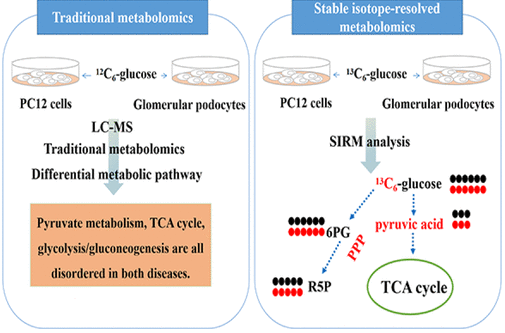As we know that depression is a psychologically pathological state or a mood disorder syndrome, the serious risks to human life and the inadequacy of available antidepressants have led us to understand the pathogenic factors of depression from a new perspective. Now the question arises, what are the specific metabolic pathways and characteristics of glucose catabolism disorders caused by depression? To address the above scientific questions, researchers creatively combined traditional metabolomic technology with stable isotope-resolved metabolomics to investigate glucose catabolism in a corticosterone-induced PC12 cell injury model and an adriamycin-induced glomerular podocyte injury model. The results showed an increase in pyruvate metabolism flux in depression. Increased change in pyruvate metabolism led to the activation of gluconeogenesis in depression. Disturbed upstream succinate metabolism causes the tricarboxylic acid cycle (TCA cycle) to be blocked in depression. In addition, there were metabolic disturbances in purine metabolism and pentose phosphate pathways in depression. Compared to nephrotic syndrome, pyruvate metabolism, TCA cycle and Gluconeogenesis metabolism were specific in depression. The metabolic pathways reviewed above are likely to be important targets for the effectiveness of antidepressants, so using isotopic compounds can be used to treat depression.
The image below shows the general scheme of normal metabolism and metabolism with the SRIM (Stable isotope-resolved metabolomics) technique:

"D-Glucose-6,6-d2" " D-Glucose-1-d1 " " D-Glucose-3-d1 "